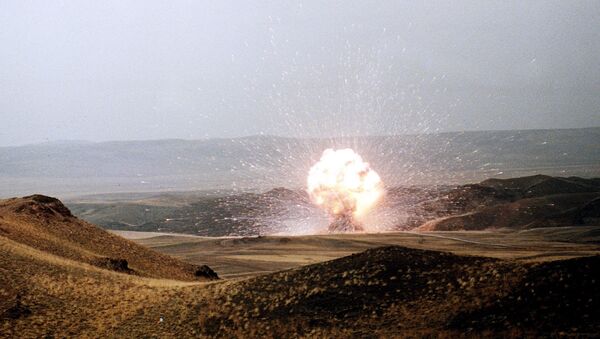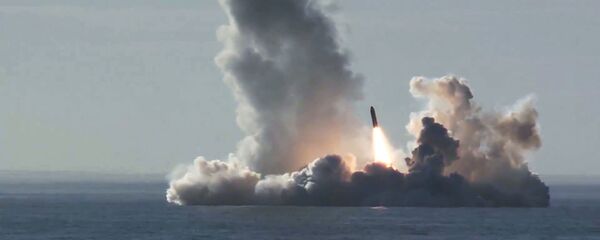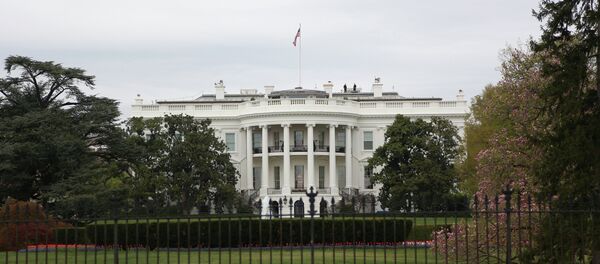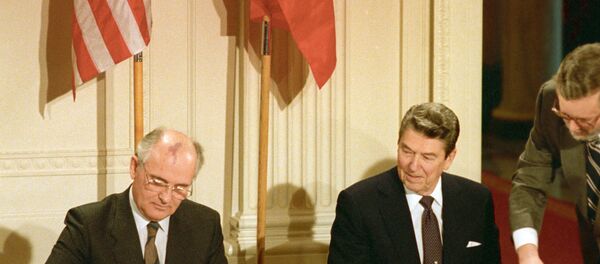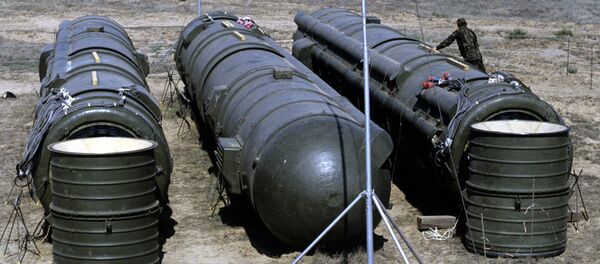Sputnik discussed the future of the INF Treaty with Alexander Gillespie, professor of international law at the University of Waikato, New Zealand.
Sputnik: Following the NATO meeting between the alliance it was announced that there is support for the US stance to pull out of the INF treaty. What are your thoughts on whether this would be beneficial to the US or NATO?
Alexander Gillespie: It's beneficial to no one that this treaty falls over. This treaty was a milestone in breaking the Cold War and building a degree of confidence and trust between the opposing sides. If this treaty falls over, we're going to go back decades in terms of arms control.
Sputnik: You have said previously that Russia's alleged violation doesn't fully legitimize Trump's decision to withdraw from the deal. Can you please elaborate on that?
Sputnik: I've talked to other experts precisely about this mechanism; has it ever been used before, successfully?
Alexander Gillespie: The essence of the mechanism was one to build trust between the nations, whereby you could go into a number of listed sites and inspect the sites to make sure that both sides were in full compliance.
READ MORE: INF Treaty Ultimatum to Russia 'Doesn't Make Any Sense for US Interests' — Prof
In this situation, you would need to take a further step. Russia would need to volunteer the missile in dispute, prove that it's legitimate, and the Americans would also need to answer the questions that Russia have on their end as well, that with their missile systems, that they too are legitimate, both sides have complaints. But it may be that both sides are using it as a reason to both back away from the agreement.
Sputnik: Do you think that Russia is just as interested in backing out of the agreement as the US?
Sputnik: And yet there are a lot of consequences; this has been really, as you mentioned earlier, a pillar of post-Cold War diplomacy. What are some of the ramifications that we can expect? What's going to happen if this crumbles?
Sputnik: Yet there are voices in the US, on Capitol Hill, that are against leaving the treaty: Democratic Senators Warner, Reed, Menendez actually said that quitting the accord unilaterally would be "a political and geostrategic gift to Russia", and they went on to say that "this would allow it to expand production and deployment of missiles that the treaty sought to constrain". I'm imagining that it would also allow the US to do so. Where do you think we're going to see more of this expansion of production and deployment, on which side?
Alexander Gillespie: To create a new generation of land-based intermediate-range missiles would take a couple of years, it wouldn't happen quickly. So it would be a slowly evolving process. And even though both sides say, at the moment, that they've got no interest in deployment, if either side felt the military advantage in deploying something which was legal, it would make sense for them to do it, and then you would expect a quid pro quo situation.
READ MORE: US Attempt to 'Bury' INF Treaty Creates New Risks for Europe — Lavrov
Sputnik: And yet, Trump and Pompeo are saying it's an outdated agreement, it doesn't really address the rising military threat of China. China has already said they're not interested in striking a similar agreement. How do you strike a balance between the various powers when some are thinking that they are at a disadvantage because they're not allowed to develop certain things that are being developed by other countries, as you also mentioned. Is it possible really to strike a balance? Are Russia and the US greatly disadvantaged because of their adherence?
The ramifications to my mind are that there's going to be anxiety in Europe, because you're going to go back to a situation where countries will develop and deploy, and then countries will be looking for reasons to back away from other agreements. The biggest fear I have is that the next one to fall could be the agreement made with Obama in 2012, and the overall framework would begin to fall apart.
The views expressed in this article are solely those of Alexander Gillespie and do not necessarily reflect the official position of Sputnik.
